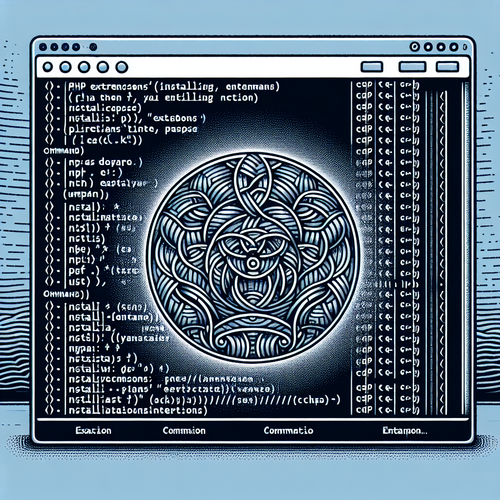
{{ $('Map tags to IDs').item.json.title }}
How to Install Extensions in PHP
PHP extensions are libraries that expand the functionality of PHP. They are essential for working with various applications and frameworks. This tutorial will walk you through the steps to install and enable PHP extensions on your Linux system.
1. Checking Installed PHP Version
Before installing extensions, check your installed PHP version to ensure compatibility:
php -v2. Installing Extensions on Ubuntu
To install PHP extensions on Ubuntu, you can use the following command:
sudo apt install php-extension_nameFor example, to install mbstring and curl extensions, run:
sudo apt install php-mbstring php-curl3. Installing Extensions on CentOS
For CentOS, use:
sudo yum install php-extension_nameAs an example, to install the gd extension, run:
sudo yum install php-gd4. Installing Extensions on Fedora
For Fedora, you can use:
sudo dnf install php-extension_nameTo install the xml extension, run:
sudo dnf install php-xml5. Enabling Extensions
After installing an extension, ensure it is enabled by editing the php.ini configuration file. Open the file:
sudo nano /etc/php/7.x/apache2/php.iniLook for the section related to extensions and add or uncomment the line for your installed extension:
extension=extension_name.soReplace extension_name with the actual name of the extension you installed.
6. Restarting the Web Server
After making changes to the php.ini file, restart your web server to apply the changes:
- For Apache:
sudo systemctl restart apache2 - For Nginx:
sudo systemctl restart php7.x-fpm
7. Verifying Installed Extensions
You can verify that the extensions are installed and enabled by running:
php -mThis command lists all enabled PHP modules. Look for the names of the extensions you installed in the output.
8. Conclusion
By following this tutorial, you have successfully installed and enabled PHP extensions on your Linux system. Installing the correct extensions is vital for enhanced functionality and ensuring your applications work as intended. Continue to explore and manage your PHP environment for effective development!













